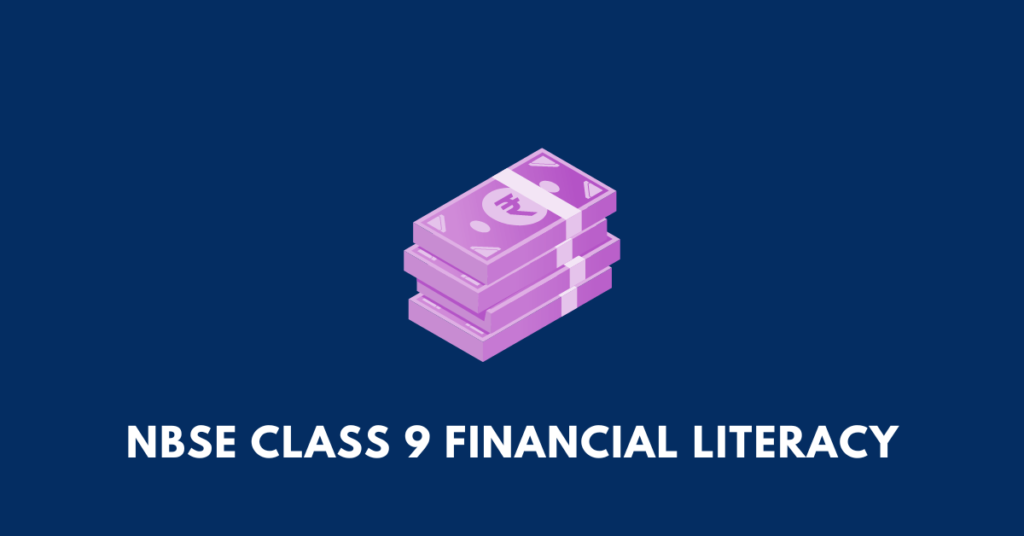Get notes, summaries, questions and answers, MCQs, extras, and PDF chapters that are part of NBSE Class 9 Financial Literacy. However, the notes should only be treated as references and changes should be made according to the needs of the students.
Select Chapter
| Unit 1: Money – What it is? |
| Unit 2: Money – Exchange Systems |
| Unit 3: What is Financial Planning? |
| Unit 4: What is Income? |
| Unit 5: What are Expenses? |
| Unit 6: What is a Bank? |
| Unit 7: Why Save? |
| Unit 8: Setting Goals |
| Unit 9: Making a Budget |
About NBSE Class 9 Financial Literacy textbook
Financial literacy is an essential subject for students to understand how to manage their finances. In Class 9, the Nagaland Board of School Education (NBSE) introduces students to key financial concepts through its curriculum. The course covers topics like the nature of money, financial planning, income, expenses, and banking, helping students grasp the basics of managing money.
The first two units focus on money and how it works. Students learn what money is and its role in exchange systems. Understanding these concepts helps students see why money is an important part of everyday life. It shows how people once traded goods directly and how money became a convenient way to make transactions easier.
The next section introduces financial planning. Here, students are taught to think about their income and expenses. They learn how to manage the money they receive, whether through allowances or other sources, and to track where it is being spent. This helps them develop a sense of control over their personal finances.
One key topic covered is the role of banks. Students learn how banks work and why they are important for saving money. The unit explains the benefits of saving money and how it can help achieve financial goals. Setting goals, both short-term and long-term, is an important step in planning for the future. This ties into creating a budget, a skill that allows students to make the best use of their income and manage their spending wisely.

Get notes of other boards, classes, and subjects
